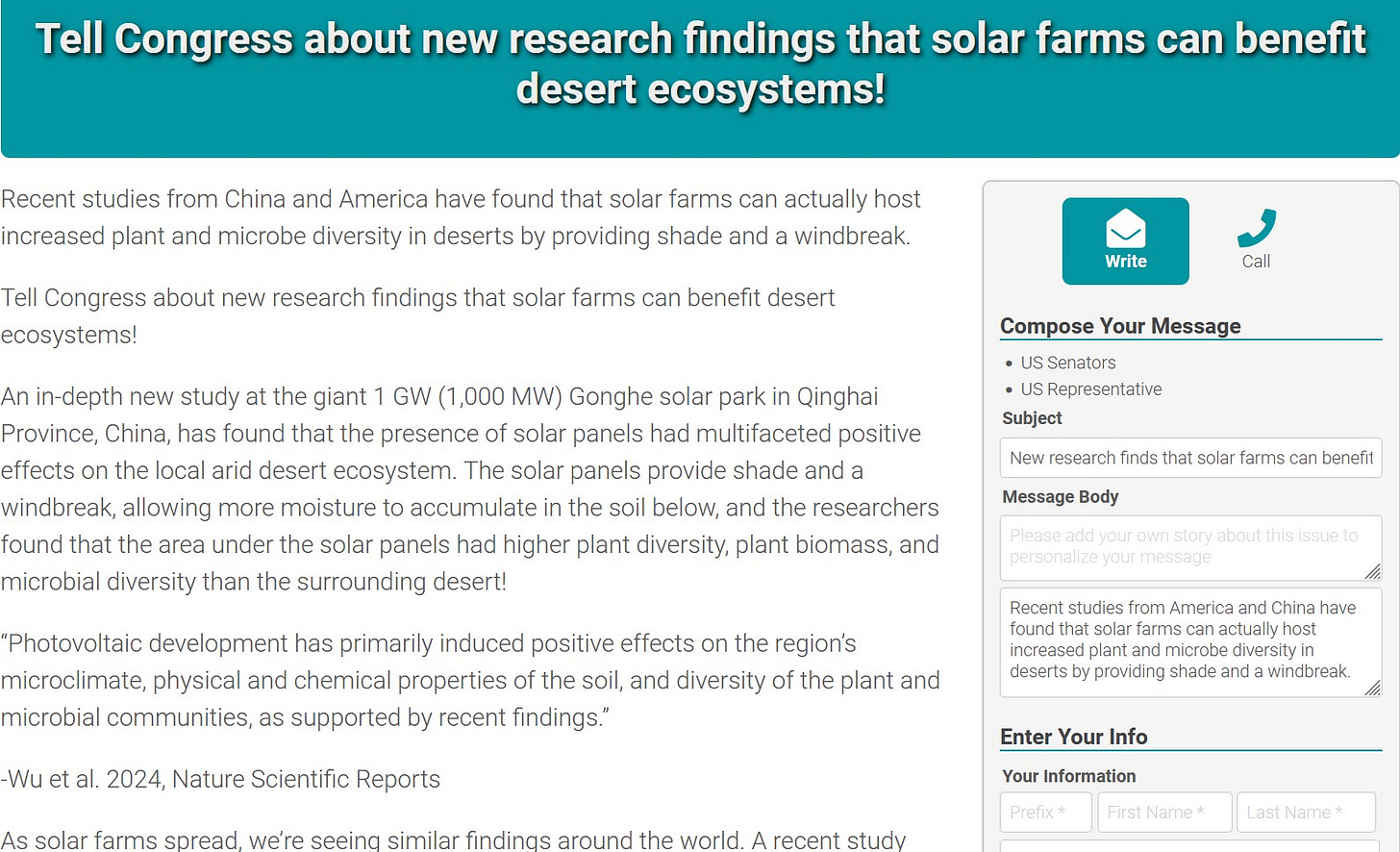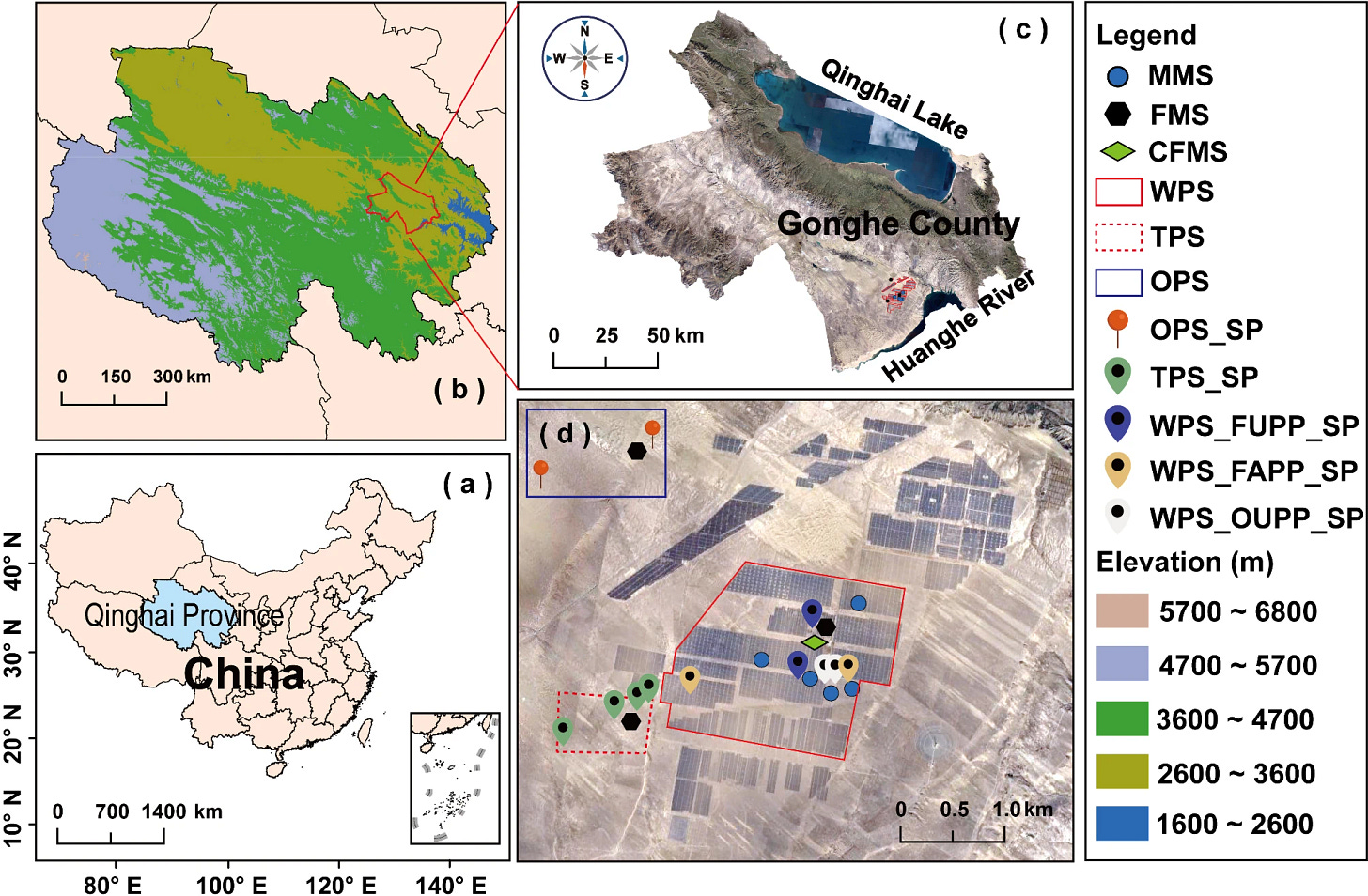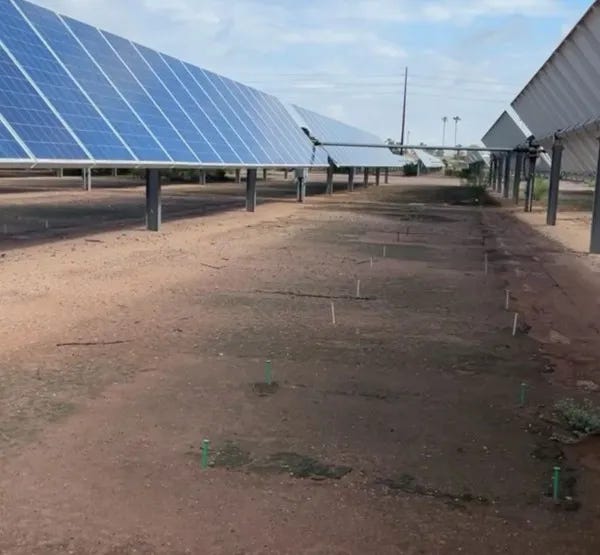Recent studies from China and America have found that solar farms can actually host increased plant and microbe diversity in deserts by providing shade and a windbreak.
Tell Congress about new research findings that solar farms can benefit desert ecosystems!
Touch or scan the QR code below to take today’s action in the app and earn trees!
Or take action on the Internet – no app required!
Reasons For Hope
An in-depth new study at the giant 1 GW (1,000 MW) Gonghe solar park in Qinghai Province, China, has found that the presence of solar panels had multifaceted positive effects on the local arid desert ecosystem. The solar panels provide shade, a windbreak, and protection from UV rays, allowing more moisture to accumulate in the soil below. The researchers found that the area under the solar panels had higher plant diversity, plant biomass, and microbial diversity than the surrounding desert!
“Photovoltaic development has primarily induced positive effects on the region’s microclimate, physical and chemical properties of the soil, and diversity of the plant and microbial communities, as supported by recent findings.”
-Wu et al. 2024, Nature Scientific Reports
As solar farms spread, we’re seeing similar findings around the world. A recent study from Arizona State University has found that the cool shade of solar panels can serve as a growth-enhancing “nursery” for small American desert plants and “biocrust” species like mosses, lichen and cyanobacteria.
It’s really starting to look like building large-scale solar farms in arid deserts is not, in fact, an ecological tradeoff - it’s a win-win! The Biden-Harris Administration’s visionary Western Solar Plan (as covered by the Daily Dose!) is looking like a better and better idea.
This is spectacular news, and vital context for informed policymaking going forward.








That's really great news Sam! Re-green deserts and get clean energy in the bargain. Splendid!